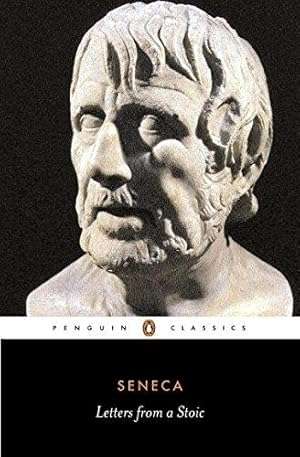
Seneca: Letters from a Stoic
Check my rate
| Main centres: | 1-3 business days |
| Regional areas: | 3-4 business days |
| Remote areas: | 3-5 business days |

| Main centres: | 1-3 business days |
| Regional areas: | 3-4 business days |
| Remote areas: | 3-5 business days |
Published by Penguin Classics, 2004, softcover, 253 pages, condition: as new.
No man can live a happy life, or even a supportable life, without the study of wisdom.
Lucius Annaeus Seneca (4 BC-AD 65) is one of the most famous Roman philosophers. Instrumental in guiding the Roman Empire under emperor Nero, Seneca influenced him from a young age with his Stoic principles. Later in life, he wrote Epistulae Morales ad Lucilium, or Letters from a Stoic, detailing these principles in full. Senecas letters read like a diary or a handbook of philosophical meditations. Often beginning with observations on daily life, the letters focus on many traditional themes of Stoic philosophy, such as the contempt of death, the value of friendship, and virtue as the supreme good. This selection of Senecas letters shows his belief in the austere, ethical ideals of Stoicism teachings we can still learn from today.
I tore this book to pieces. My copy is overflowing with tabbed pages and highlighted lines and notes in the margins. Seneca of course, is a fascinating figure. Gregory Hays once said about Marcus Aurelius that "not being a tyrant was something he had to work at one day at a time" and often, Seneca lost that battle. He was the Cardinal Richelieu behind Nero. He sat back and enjoyed the spoils of his student who had clearly lost his way--at least Aristotle didn't profit from Alexander's lust for power. However, there is some interesting evidence put forth in a paper titled - Seneca: The Case of the Opulent Stoic in which Lydia Motto presents that what we know of Seneca's reputation comes almost entirely from a single, less than objective source. And in fact, if we can trust the way in which Seneca faced his forced suicide there was not much difference between practice and philosophy.
On endurance:
Life's no soft affair. It's a long road you've started on: you can't but expect to have slips and knocks and falls, and get tired and openly wish--a lie--for death.
On freedom from perturbation:
Show me a man who isn't a slave; one who is a slave to sex, another to money, another to ambition; all are slaves to hope or fear. I could show you a man who has been a Consul who is a slave to his 'little old woman', a millionaire who is the slave of a little girl in domestic service. And there is no state of slavery more disgraceful than one which is self-imposed.